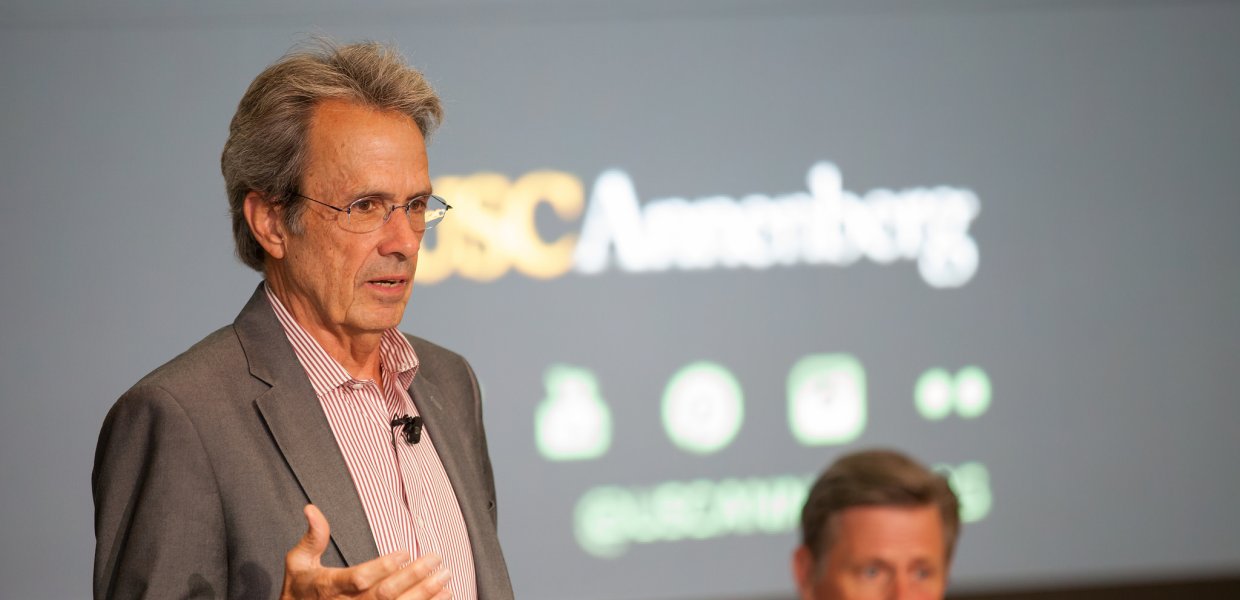According to the 2018 Global Communications Report, 64% of public relations professionals surveyed predict that in five years the average consumer will not be able to distinguish between news stories written by journalists (earned media) and promotional content purchased by an organization (paid media). Furthermore, 59% believe the average person will not care if they can tell the difference between the two.
The third annual study, released today by USC Annenberg’s Center for Public Relations, is a comprehensive survey of more than 1,000 public relations leaders and students worldwide.
“As traditional advertising revenue declines, media outlets are creating new sources of revenue through branded promotional content, which has blurred the historically clear-cut line between news and advertising,” said Fred Cook, director of the Center for Public Relations. “This shift demands a higher level of transparency from business and a greater level of media literacy from consumers.”
Forty-two percent of PR professionals believe the trend toward “branded content” is a potential ethical issue. An even greater number (52%) are concerned about the related, fast-growing practice of paying celebrities, YouTubers or Instagrammers to create content that promotes various products and brands. Not surprisingly, PR executives predict a decline of resources devoted to earned media over the next five years, as owned and paid media budgets continue to grow.
The report is available for download in full here.
But these aren’t the biggest ethical issues the communications industry is facing. Ninety-two percent of global communications executives cited “fake news” as the most challenging ethical threat to their profession, followed by the purposeful distortion of the truth (91%). Defense of malicious behavior (88%) and lack of corporate transparency (81%) are also high on the list of potential ethical issues confronting communicators.
“Today, communications professionals regularly find themselves in the middle of complex ethical situations, which impact the image of their organizations and their profession,” Cook said. “As we witness every day, even the slightest hint of unethical behavior can result in permanent damage to the reputation of a company or an individual.”
Despite these troubling trends, 46% believe that businesses in their countries have become more ethical over the past five years and 62% predict that businesses will behave even more ethically over the next five years. The same development applies to their own industry, which 61% say will operate more ethically in the future.
Even though 55% of public relations executives cite working for controversial clients as a potential ethical issue, 82% believe that all individuals, organizations and governments have the right to PR counsel. However, 95% of those same communicators state they personally would not represent or work for certain organizations, individuals or governments due to ethical concerns. Tobacco (79%) and firearms (74%) top the list of industries they believe represent potential ethical issues. Representing political candidates is not far behind at 60%.
“This year’s study highlights the complications of communicating in an environment where definitions of trust, transparency and even truth are changing every day,” Cook said. “The communications and journalism professions must join forces to protect the credibility of the information we deliver and to preserve the trust of the general public.”
